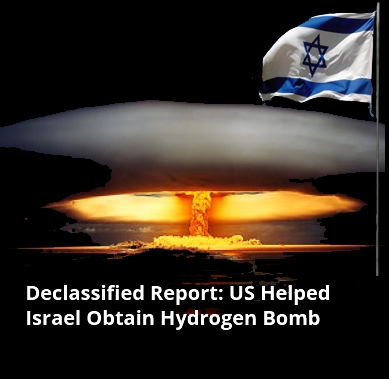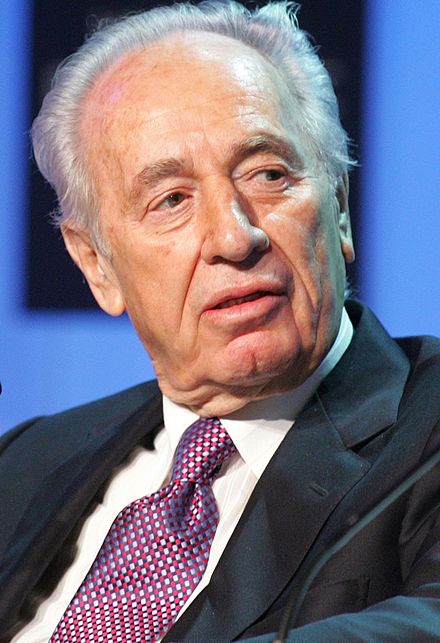

The facility near Gedera where Elie Geisler says Israel’s first nuclear device was kept
The furor and the fear of a bomb under the rule of Kim Jung Un ought to raise a question ..
Does Israel actually have a bomb?
There is something very strange about Israel’s bomb. If it exists, it is rather invisible. Nothing ever emerges in the media despite the presence of satellites and airborne detectors able to sniff small amounts of waste from even an underground bomb explosion. The story now seems to go back as far as the 1967 war between Israel and its neighbors .. a war that threatened to destroy Israel.
Whenever Israel actually decided to build a bomb, the actual evidence that the bomb exists is puzzling. Evidence from Iran and North Korea is obvious. Iran’s efforts to build a bomb have been extensively monitored by satellites. In North Korea, their bomb has been visible in the form of tests detected by seismic effects and images taken from space. How did Israel do all this in secret?
The usual narrative is that Israel began its efforts in reaction to the six day war in 1967. Today, there are estimates that Israeli possesses as many as 400 nuclear warheads, as well as the ability to deliver these weapons with US made fighter-bombers, German made ultra quiet submarines, and the Israeli made Jericho ballistic missiles.

Shimon Peres has been an Israeli Prime minister and leader and today elder of phenomenal ability. He began Israel’s nuclear program in the 1960s, including creating the center in Dimona that supposedly houses Israeli current ability to make bombs. Given Israel’s policy of refusing to publicly acknowledge it has such a bomb, one wonders whether Peres’ greatest achievement is the world’s first virtual nuclear threat?
The obvious question is where were the bombs built? Aside from claims that Israel and the Apartheid regime of South Africa collaborated, none of the sort of evidence gathered from North Korea or Iran ever seems to have become public even though, according to the Nuclear Threat Initiative, Israel obtained Uranium from South Africa as early as 1977, supposedly tested a bomb in 1979 off South Africa, and went on to manufacture at least six nuclear bombs.
The South African test has never been confirmed. Although light flashes from a possible test explosion was observed over the Southern Ocean in September 1979 by a US Vela satellite, air samples did not show evidence of radioactivity. Despite the fall of Apartheid, no official confirmation or denial of a nuclear test has been made by South Africa. In 1997, South African Deputy Foreign Minister Aziz Pahad stated that South Africa had conducted a test, but later retracted his statement as being a report of rumors. One of these originated from a Soviet spy, Dieter Gerhardt, former commander of South Africa’s Simon’s Town naval base who was later convicted of spying for the USSR, who was reported to have said:
“Although I was not directly involved in planning or carrying out the operation, I learned unofficially that the flash was produced by an Israeli-South African test code-named Operation Phoenix. The explosion was clean and was not supposed to be detected. But they were not as smart as they thought, and the weather changed – so the Americans were able to pick it up.”
Now, Elie Geisler in Haaretz is quoted as saying that says he was asked during the Six

Elie Geisler received training as a radiation-safety officer while serving as a soldier at Dimona from 1964 to 1966. As the crisis escalated in late May 1967, Geisler was summoned to meet the head of the Minhal Madaii—the secret scientific administration in charge of the nuclear project—who gave him a special assignment: guarding a radioactive “package” to be placed under heavy security. He gave extensive information to the Woodrow Wilson Center in a series of interviews and emails.
Day War to guard a secret base in central Israel that held the device. Geiseler, now an American citizen, was serving in the Israeli military as radiation inspector. He claims that an Israeli Col. Yitzhak Yaakov, threatened to break into it by force and demanded control of the base. Geisler feared there could be an armed internal Israeli conflict over control of nuclear power.
Israel has always refused to confirm or deny possessing a nuclear capability, but it’s not plausible that it doesn’t have one. Meanwhile, the so-called “Vela incident” consists of nothing more than inconclusive satellite data and ambiguous circumstantial evidence. Analysts at the time noted differences between this data and previously observed nuclear tests, and attributed it to rare but plausible natural phenomena. Expert opinion currently leans toward a nuclear test, with the parties involved (most likely Israel and/or South Africa) going to lengths to conceal it from detection. South Africa is known to have had nuclear weapons (fewer than 10) at that time. What the Vela incident actually was continues to be debated.
Yes .. but why is it “not plausible that it doesn’t have one”? All the things are good for is threats. If you can make up one, that is safer and likely as easy to conceal. If you have one, unless someone else built it for you, a nuke requires a lot of physical plant. Where would Israel hide it? Remember Israel has about twice our population, is about the size of western Washington. It lacks our mountains, the sound and lakes. If a nuke facility were hidden here, other than under Puget Sound or under a mountain, where could it be?
Why is it probable that Israel has nukes? Several reasons. One, Israel isn’t a country that relies on bluffing to defend itself. Two, it has invested a lot of money in nuclear facilities. Three, it has invested a lot of its defense budget in delivery systems. As for where Israel stores its nuclear warheads, undoubtedly in proximity with the weapons that deliver them (otherwise they’re useless in a crunch), so some will be aboard submarines and others on air bases. Modern nuclear warheads are about the size of traffic cones, so they require little storage space, and a reasonable guess is the ones not aboard ships are in underground bunkers on well-guarded military bases.
Sorry bunnie but your logic fails me. First, to be very clear, I am not trying to prove that Israel does not have nukes. All I can say is that the only evidence we have is what Israel says. Of course, if someone else provided the bombs, Israel could have them just like you and I might have a nuclear suitcase in the basement. I do not think you have one because you have no reason to want one and because I do not imagine anyone giving you one. But, lets suppose a Muslim extremist trained in nuclear physics, told you he has such a suitcase? Would you not wonder where he refined the uranium? How about asking had he ever tested the device and if so where?
Now suppose he offered you a chance to bribe him not to use the thing? What evidence would you seek before paying the bribe?
Israel isn’t some guy with a suitcase.
It has a nuclear reactor, nuclear physicists, acquired uranium and bomb components, collaborated with France on weapons development, and refused to sign the Non-Proliferation Treaty.